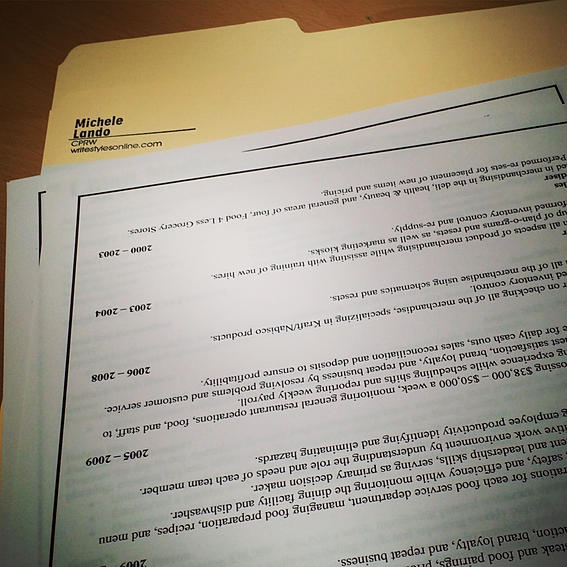
To go over a page, or not to go over a page? That is the question. Well the truth is, it depends. My general rule of thumb is that if you have 1/3 of a page or under on the second page, try to make it fit by searching for “fluff” words, extra spacing, etc. If you have more than 1/3 of a page and everything is important content about your career, it’s actually better to have it spread out between 2 pages to make it more reader friendly. I once read an article which stated that if your resume is not skimmable, (meaning that a hiring manager could spend the average of 6 seconds glancing at your resume and get the gist of what you do) it is basically worthless.
That statement may seem harsh, but the reality of the job market suggests this is true. Someone who presents such an information dense resume squeezed onto one page with half inch margins all around is almost sure to get very little attention solely based on the fact that no one wants to sit and decipher that. Make your resume clear, concise, and easy to read to ensure you get noticed. Making it easy for hiring managers or recruiters to immediately view your strengths and skillset is one of the main things that will get you an interview.
It’s hard to give standards to who should have a resume over a page and who shouldn’t, but generally, about 5 years in the workforce or less will stay within 1 page, and time over that may overflow. Again, an engineer who has extensive knowledge and certifications, but is only 4 years out of college may have a 2 page resume, where someone who’s been working for 20 years with only 2 jobs at the same company may be able to fit it into one. There is no one-size-fits-all for a resume, so as long as you stick to a reader friendly, to-the-point style of writing, you’ll probably be fine.
NOTE: this is referring to a resume. A CV will almost always be over a page as it is much more extensive and used mostly for people with vast experience, those in higher education, or those in research with publications, etc.
